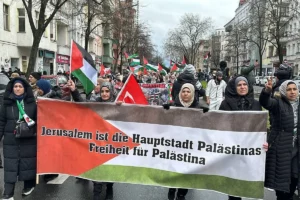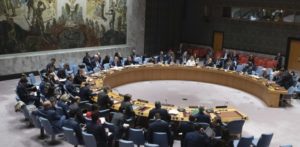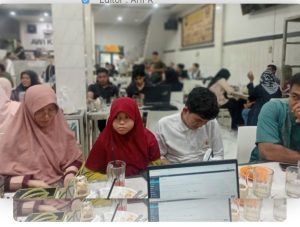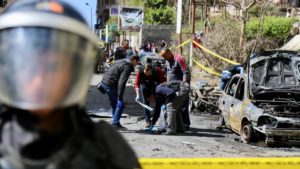
London attacker Khalid Masood spent time in Saudi Arabia.
London, 04 Rajab 1438/01 April 017 (MINA) – Decades before he murdered four people outside the Houses of Parliament, Khalid Masood was a schoolboy from well-to-do Tunbridge Wells named Adrian Russell Ajao.
Also Read: Global Movement to Gaza to Hold Coordinated Rallies in 13 Cities on International Day of Solidarity
Investigators may never learn the true motives for his attack..
But one of the few facts known for certain is that Masood’s case fits into a broad but poorly understood trend: Muslim converts in the West are much likelier than their native-born co-religionists to engage in terrorism, or travel abroad to fight for jihadist organisations like Islamic State (IS), economist reported.
In Britain, converts make up less than 4% of Muslims but 12% of home-grown jihadists.
About a fifth of American Muslims were raised in another religion, yet two-fifths of those arrested on suspicion of being IS recruits in 2015 were converts.
Also Read: Russia Warns Trump’s Gaza Plan Could Enable “Uncontrolled Experiments” on Occupied Territory
In France, Germany and the Netherlands, converts are around four times as likely as lifelong Muslims to go to fight in Syria and Iraq.
Inconclusive theories
Terrorism experts have many theories, none of them conclusive. Surveys by John Horgan of Georgia State University show that converts seem more willing than native Muslims to radicalise.
Some argue that this is because of their “double marginalisation”, by both bewildered non-Muslim friends and sceptical native Muslims, leaving them vulnerable to the overtures of radicals. According to defectors from IS, recruiters particularly prize new converts because they are harder for intelligence services to trace.
Also Read: Activist Unfurls Palestinian Flag During German Parliament Session, Protesting Gaza Policy
Others note that many conversions to Islam in the West occur in prison. Peter Neumann of King’s College London provocatively contends that jihad “has become a counter-culture—the most bad-ass way of going against society.”
The sheer diversity of cases frustrates efforts to understand why converts radicalise.
Masood, the Westminster attacker, spent time in prison, but was an uncharacteristically old 52. Nicholas Young, a Washington, DC, transit-police officer who was arrested last year for supporting IS, was also a Nazi sympathiser.
Others arrested in America for IS-related activities range from a 15-year-old boy to a 47-year-old ex-soldier. Douglas McCain, an American convert killed while fighting in the countryside of Aleppo province, was once an aspiring rapper.
Also Read: Hundreds Rally in Stockholm to Condemn Israeli Attacks and Ceasefire Violations in Gaza
Most counter-terrorism policy pays little notice to converts and focuses on preventing extremism among immigrants—such as Donald Trump’s travel ban—or within established Muslim communities, like parts of Britain’s “Prevent” strategy.
That may be short-sighted, and even counterproductive, argues Mr Neumann. Links to mainstream Islamic institutions could dissuade converts from falling into radicalism—and prevent its deadly consequences. (T/RS5/RS1)
Mi’raj Islamic News Agency (MINA)
Also Read: Mass Protests Erupt in Bologna Against Israeli Teams Ahead of EuroLeague Match



































 Mina Indonesia
Mina Indonesia Mina Arabic
Mina Arabic